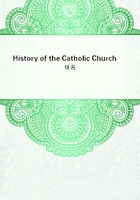
第140章
But their very success was sufficient to arouse the wrath of their adversaries and the jealousy of their rivals. Lutherans and Calvinists, enraged by the success of the Counter-Reformation, denounced the Jesuits as enemies of progress and enlightenment, whose very existence was a danger to the peace and the liberty of Europe.
These charges were re-echoed by Jansenists and Gallicans, by infidel philosophers and absolutist politicians, and, stranger still, by many whose orthodoxy could not be questioned, but whose judgment was warped by their annoyance at the wonderful success of a comparatively young organisation. The Jesuits were accused of favouring laxity of morals on account of the support given by some of them to Probabilism, of sympathising with Pelagianism on account of the doctrine of Molina, of supporting tyrannicide on the strength of the work of Mariana, of upholding absolutism on account of their close relations with the rulers of France, and Spain, and of seeking to undermine governments and constitutions by their secret political schemes and their excessive wealth. Garbled extracts taken from the works of individual Jesuits were published as representing the opinions of the body, and the infamous /Monita Secreta/, purporting to contain the instruction of Aquaviva to his subjects, was forged (1612) to bring discredit upon the Society.[1]
More than once the combined assaults of its enemies seemed on the point of being crowned with success. During Aquaviva's tenure of office as general (1585-1615) the society was banished from France and from Venice, while the demands of the Spanish Jesuits for a Spanish superior, backed as it was by the influence of the court, threatened to destroy the unity of the Society. Again in the time of Paul Oliva (1664-1681) and Charles Noyelle (1682-1686) controversies regarding Jansenism, Probabilism, the /Regalia/, and the Gallican Declaration of the French clergy (1682), endangered the existence of the Society in France, and threatened to lead to misunderstandings with the Holy See, but under the Providence of God these dangers were averted, and the eighteenth century found the Jesuits still vigorous in Europe and not less vigorous in their labours among the heathen nations.
But their opponents though beaten time and again were not disheartened. The infidel philosophers of the eighteenth century recognised in the Jesuits the ablest defenders of the Catholic Church.
If only they could succeed in removing them, as Voltaire declared, the work of destroying the Church seemed comparatively easy. Hence they united all their forces for one grand assault upon the Society as the bulwark of Christianity. They were assisted in their schemes by the Jansenists, eager to avenge the defeat they had received at the hands of the Jesuits, and by the absolutist statesmen and rulers of Europe, who aimed at the enslavement of the Church, and who feared the Jesuits as the ablest exponents of the rights of religion and of the Holy See.
The Jesuits controlled to a great extent Catholic education both lay and clerical, and it was hoped that by installing teachers devoted to state supremacy and Enlightenment in their place the future of absolutism and of rationalism might be assured.
The attack on the Jesuits was begun in Portugal during the reign of Joseph Emmanuel (1750-1777). He was a man of liberal views, anxious to promote the welfare of his country, as well as to strengthen the power of the crown. In accomplishing these objects he was guided by the advice of the prime minister, Joseph Sebastian Carvalho, better known as the Marquis of Pombal.[2] The latter had travelled much, and was thoroughly imbued with the liberal and rationalistic spirit of the age. He regarded the Catholic Church as an enemy of material progress, and the Jesuits as the worst teachers to whom the youth of any country could be entrusted. A treaty concluded with Spain, according to which the Spaniards were to surrender to Portugal seven of the Reductions of Paraguay in return for San Sacramento, afforded him the long desired opportunity of attacking the Jesuits (1750). The Indians on the Reductions, who had been converted by the Jesuits, were to be banished from their lands to make way for mining operations in search of gold, and though the Jesuits tried hard to induce their people to submit to this decree, the Indians, maddened by the injustice and cruelty of the treatment of the Portuguese, rose in revolt. The Jesuits were blamed for having fomented the rebellion. By orders of Pombal they were arrested and brought to Portugal, where the most extravagant charges were published against them in order to damage them in the eyes of the people.
The Portuguese government appealed to Benedict XIV. to take action against the Society. The Pope appointed Saldanha an apostolic visitor to examine into the charges that had been made. Though the instructions laid down for the guidance of the visitor were precise in every detail, Saldanha, unmindful of the restrictions imposed by the Pope and without hearing any evidence that might favour the accused, decided against the Jesuits and procured the withdrawal of their faculties in Lisbon (1758). In September of that year a plot directed against one of the royal officials, but supposed to have for its object the murder of the king, was discovered and attributed without any evidence to the Jesuits. They and many of their supposed allies among the nobility were arrested and thrown into prison; their schools were closed, and various fruitless attempts were made to induce the younger members to disown the Society. Finally in September 1759 a decree of banishment was issued against the Jesuits. Most of them were arrested and despatched to the Papal States, while others of them, less fortunate, were confined as prisoners in the jails of Portugal.